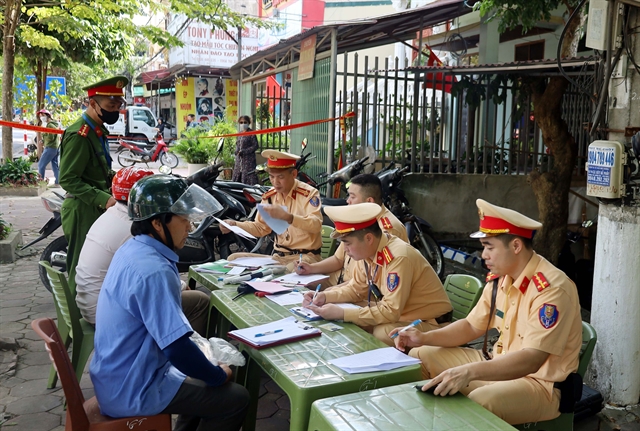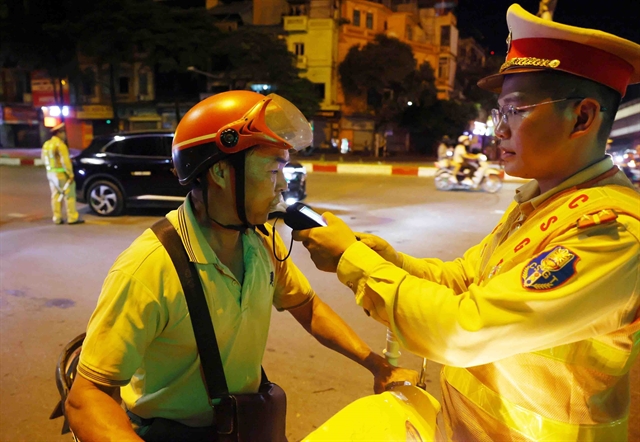 Society
Society

 |
| A traffic police officer measures a motorist's blood alcohol level in Hà Nội. — VNA/VNS Photo Phạm Kiên |
HÀ NỘI — The Ministry of Public Security (MPS) recently proposed administrative fine reductions for drivers with positive blood alcohol concentration tests, which has been met with mixed reaction from the public.
The document is currently receiving feedback on the changes.
Speaking to the Voice of Vietnam (VOV), Vietnam Automobile Transportation Association Chairman Nguyễn Văn Quyền said he supported the proposal, explaining that the violations at the lowest level of blood alcohol concentration (BAC) pose insignificant risks.
“Many cases with low BAC levels consumed alcoholic drinks the previous night or quiet a while before they drive, but everyone has different metabolism rates, which means their BAC test result remains positive the morning after,” he added.
At such low thresholds, the drivers have little risk of being unable to control their vehicles, said Quyền.
In addition, certain types of food and drinks or endogenous alcohol concentrations can also cause a person’s BAC level to rise.
Therefore, Quyền believed that adjusting penalties for violators with low BAC levels, according to the MPS’ proposal, is reasonable.
Meanwhile, criminal psychologist Dr Đoàn Văn Báu said that when the regulation is enforced to raise public awareness and has achieved this goal, maintaining high penalties might no longer be appropriate.
This is not only applicable to BAC levels in driving but also to other types of traffic violations.
Regarding concerns about whether the reductions will lead to lower law compliance among drivers, Báu believed that the purpose of administrative fines is to let people understand their mistake and to avoid committing violations in the future, not to collect money.
“In reality, there are cases where the value of the violating vehicles is much cheaper than the penalty, therefore the driver decides to abandon their [confiscated] vehicle,” he said.
Each person’s alcohol tolerance is different from another. “Some can get drunk and out of control just after one drink, but some others are fine even after consuming bottles of liquor”, he said, therefore the zero-tolerance policy is strictly necessary to ensure safety for all.
In regard to endogenous ethanol or the ‘auto-brewery syndrome’ that leads to positive BAC level tests even without alcohol consumption, Báu said that the laws allow normal BAC levels.
“What should be done is to differentiate between endogenous BAC levels and those of people who consume alcohol and impose fines on those who do drink and drive,” he said.
The Ministry of Health has been assigned to establish guidelines for determining both BAC levels from drinking and endogenous alcohol concentrations. — VNS




